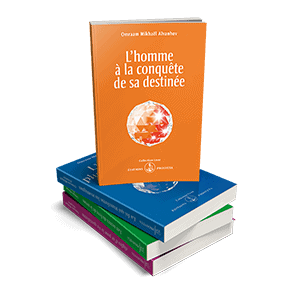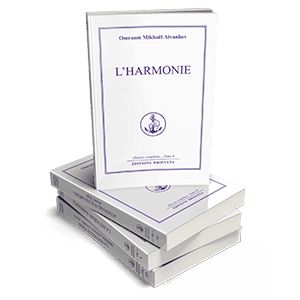Omraam Mikhaël Aïvanhov
Omraam Mikhaël Aïvanhov is a Bulgarian-born philosopher, pedagogue and esotericist who has lived most of his life in France and is known worldwide for the originality of his teachings on contemporary spirituality.
Renowned for his analogies with nature, which enabled him to convey abstract spiritual concepts in an accessible way, Aïvanhov left his mark on the 20th century with his lectures addressed to the entire Western population in search of concrete spirituality , far removed from the rigid dogmas derived from catechism.
Contents
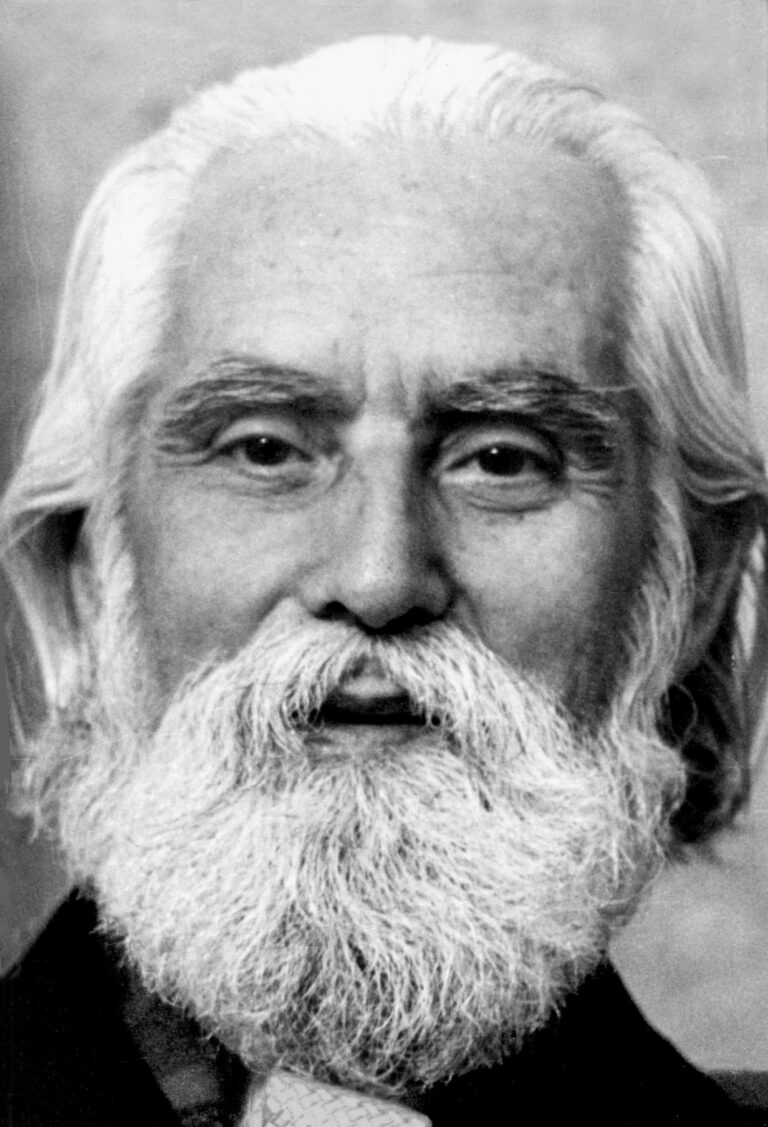
Contents
Biography of Omraam Mikhaël Aïvanhov
Youth and origins
Born into a modest family in a small town in the Ottoman Empire, Aïvanhov grew up in a context marked by major political changes and regional conflicts. From an early age, he distinguished himself by his interest in spiritual and philosophical questions, a passion that would be nourished by reading European and Eastern religious and philosophical texts. At the age of seventeen, he met the Bulgarian philosopher Peter Deunov, who was to become his spiritual mentor and profoundly influence his future path.
This apprenticeship with Deunov not only enriched his understanding of spiritual teachings, but also prepared him for his own mission. Driven by a desire to share his knowledge and help others find their spiritual path, Aïvanhov decided to leave his native country for Western Europe. In 1937, he arrived in France, a country chosen for its cultural openness and freedom of thought. There, he began giving lectures and writing books that laid the foundations for an integrative philosophy, combining Western and Eastern spirituality.
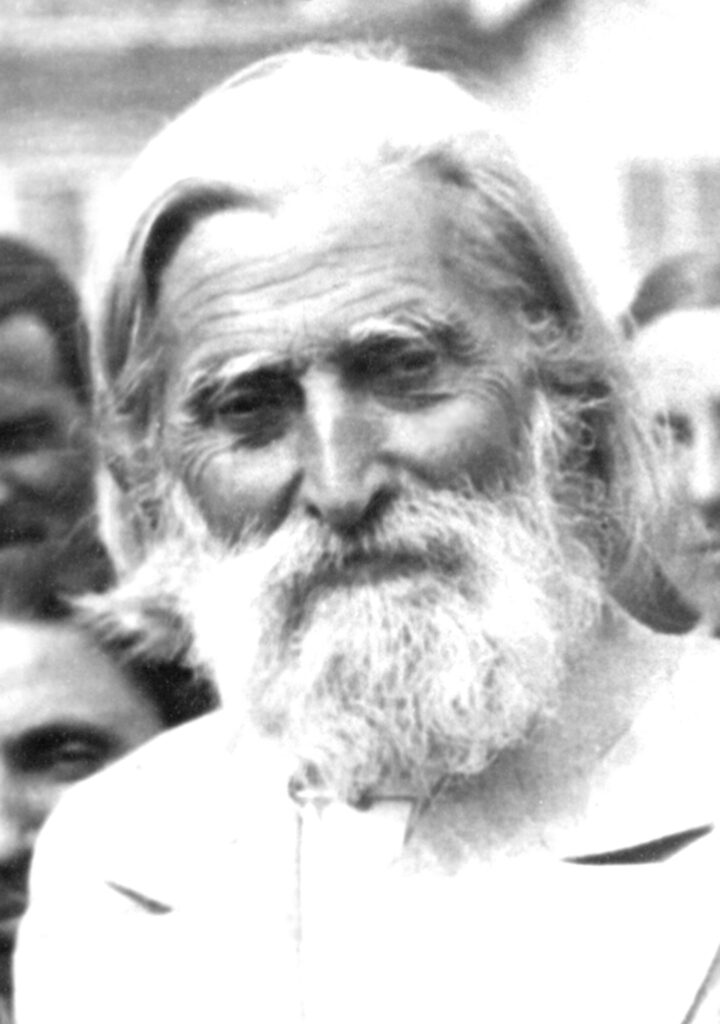
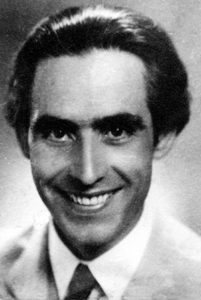
Arrival in France and development of his teaching
Settling in Paris, Aïvanhov quickly set to work, driven by a tense historical context and the need to offer a spiritual haven in these uncertain times. His talks on spirituality and personal growth attracted a large number of people. His lifelong teachings in France delve into the complexities of meditation, explore depth psychology and place particular emphasis on the application of ethical principles to everyday life. These subjects resonate deeply with an audience in search of meaning and guidance in the face of global upheaval.
Over the years, Aïvanhov’s teaching quietly spread, transcending the borders of the French capital to reach an international audience. He deepened his teaching methods, integrating practical workshops into his lectures.
Foundation of Prosveta Publishing
To make his teachings timeless, Prosveta Éditions Prosveta was founded and numerous books were published based on his lectures, enabling everyone to experience the principles he taught more intimately in everyday life. These books, compilations of his thoughts and teachings, have helped spread his influence far beyond the lecture hall, capturing the essence of his philosophy and making his ideas accessible to a global audience.
Aïvanhov's philosophy and teachings
Pedagogical approach
Aïvanhov always emphasized the need to live the teachings rather than merely understand them intellectually. His pedagogy is based on the idea that education must touch the whole being – body, mind and spirit. He uses an integrative approach, combining theoretical lessons, guided meditations and practical exercises to help his students integrate his teachings into their daily lives.
In his quest to make spiritual concepts accessible, Aïvanhov frequently used analogies drawn from nature, helping to illustrate abstract ideas clearly. For example, he often compared spiritual growth to that of trees, emphasizing how deep roots and a solid foundation are essential for reaching great heights. These natural metaphors made his teachings more tangible and helped his students visualize and understand the depth of his concepts, facilitating their practical application in everyday life. This method of teaching, both poetic and practical, strengthened the bond between his students and the spiritual principles he sought to impart.
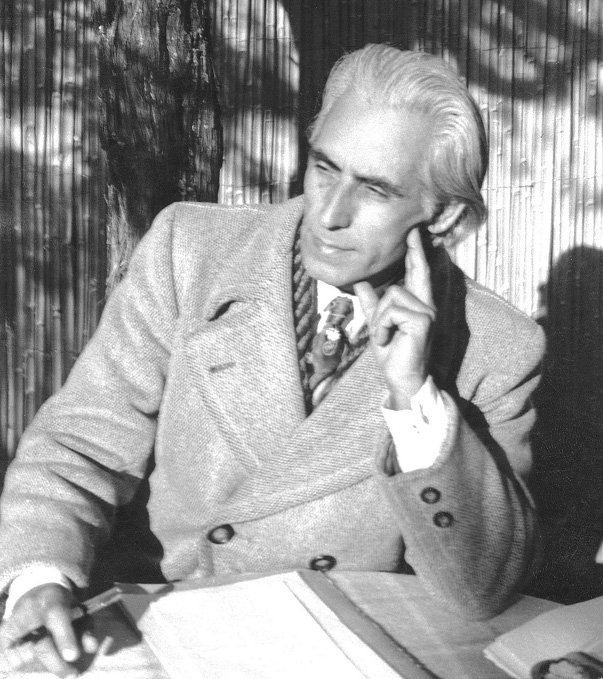
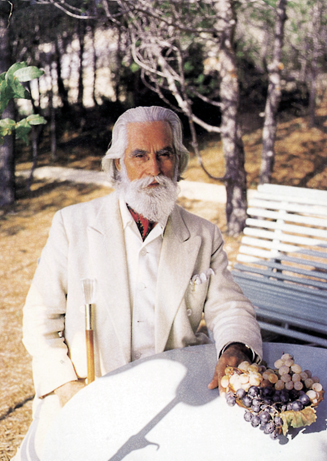
The original thought of Omraam Mikhaël Aïvahov
AlthoughOmraam Mikhaël Aïvanhov developed many original ideas during his lifetime, some remain central to his work:
- The New Earth Aïvanhov advocated inner transformation as a means of creating a“new earth“, a world guided by spirituality and ethics. He envisioned an era of peace and harmony, resulting from theelevation of collective consciousness and a commitment to values of purity, light and love. This vision calls for a renewed humanity, dedicated to social and environmental regeneration.
- Solar civilization Aïvanhov’s vision is of a society in which the values of sharing, mutual respect and harmony with nature predominate. This vision is based on the idea that, just as the sun gives indiscriminately, human beings can also live by spreading love and light around them.
- The yoga of nutrition For Aïvanhov, eating is not just a physical act, but also a spiritual one. He teaches that the way we eat, our gratitude for food, and our awareness while eating can raise our spiritual level.
Spiritual electroplating Aïvanhov introduces the idea that pregnant women can shape the spiritual and physical development of their unborn child through their own thoughts, feelings and behavior. He advocates a conscious approach to pregnancy that benefits both mother and child.
Impact and Legacy
Influence on modern thought
Aïvanhov’s influence on modern thought is notable in the fields ofholistic education and contemporary spirituality. His non-dogmatic approach to spirituality has paved the way for a wider acceptance of meditative and spiritual practices in the Western context.
Omraam Mikhaël Aïvanhov also contributed to the harmonization of Eastern and Western spiritual traditions, enriching Western understanding of mysticism with Eastern perspectives. This fusion has encouraged a deeper interdisciplinary exploration of spiritual practices for well-being and enlightenment.


Continuity of O.M.A.'s work through Éditions Prosveta
To this day, O.M.A.’s work continues to be distributed by Éditions Prosveta throughout the world. New books are regularly published, constantly enriching the collection available to readers. These publications include not only transcriptions of his lectures, but also thematic compilations that bring together his thoughts on specific subjects such as meditation, spiritual psychology and personal transformation.
Prosveta strives to maintain a living connection between Aïvanhov’s teachings and readers around the world, offering books that serve as both practical guides for everyday life and profound resources for personal and spiritual growth. These efforts ensure that Omraam Mikhaël Aïvanhov’s legacy remains accessible and continues to inspire those seeking to deepen their understanding of spirituality.
List of Omraam Mikhaël Aïvanhov's books
Publications
Aïvanhov’s works, available in several languages, include guides to meditation, ethics and practical spirituality, providing valuable resources for those seeking to deepen their understanding of his teachings.
Several formats have been made available over the years to accommodate readers:
- Books
- Audio books
- Audio and video conferences
- Daily thoughts
- Biographies
- Digital books (coming soon)
In the following section, we present all the titles in our two best-selling collections worldwide: the Izvor paperback collection, and the Complete Works of Omraam Mikhaël Aïvanhov.
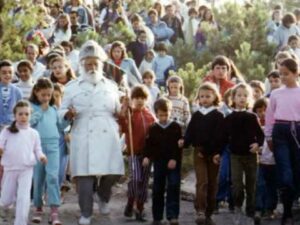
- Toward a solar civilization
- Man, master of his destiny
- Education begins before birth
- The yoga of nutrition
- Sexual force or the Winged Dragon
- A philosophy of universality
- What is a spiritual master?
- The egregore of the dove or the reign of peace
- Christmas and Easter in the initiatic tradition
- The tree of the knowledge of good and evil
- Freedom, the spirit triumphant
- Light is a living spirit
- Man’s two natures; human and divine
- Cosmic creation – Union of the masculine and feminine
- The true meaning of Christ’s teaching
- The living book of nature
- New light on the Gospels
- The symbolic language of geometric figures
- Man’s subtle bodies and centers – The aura, the solar plexus, the chakras
- The zodiac, key to man and to the universe
- The alchemy or the quest of perfection
- Man’s psychic life: elements and structures
- Creation: artistic and spiritual
- The powers of thought
- Harmony and health
- The book of divine magic
- Golden rules for everyday life
- Looking into the invisible – Intuition, clairvoyance, dreams
- The path of silence
- The book of revelations: A commentary
- The seeds of happiness
- The mysteries of fire and water
- Youth: creators of the future
- Truth: fruit of wisdom and love
- “In spirit and in truth”
- Angels and other mysteries of the tree of life
- Cosmic balance – The secret of polarity
- The faith that moves mountains
- Love greater than faith
- Sons and daughters of God
- The Philosopher’s Stone in the Gospels and in alchemy
- The wellsprings of eternal joy
- The laughter of a sage
- “Walk while you have the light”
- The second birth – Love, wisdom, truth
- Spiritual alchemy
- The two trees of Paradise
- The mustard seed
- The powers of life
- Harmony
- The mysteries of Iesod – The foundations of the spiritual life
- Symbolic language, language of nature
- “In the beginning was the Word” Commentary on the Gospels
- The splendors of Tiphéret – The sun in spiritual practice
- The essential key to solving life’s problems
- The laws of cosmic morality
- The new earth – Methods, exercises, formulas, prayers
- Love and sexuality I
- Love and sexuality II
- Hrani Yoga – The alchemical and magical meaning of nutrition
- “Know thyself” Jnani Yoga I
- “Know thyself” Jnani Yoga II
- Zemia, the land
- Voda, water
- Veuzdouh, the air
- Oguèn, the fire
- The new religion: solar and universal I
- The new religion: solar and universal II
- Aquarius and the advent of the Golden Age I
- Aquarius and the advent of Golden Age II
- Initiatory pedagogy I
- Initiatory pedagogy II
- Initiatory pedagogy III
- Life and work at Divine School I
- Life and work at the Divine School II
- The fruits of the Tree of Life – Kabbalistic tradition

